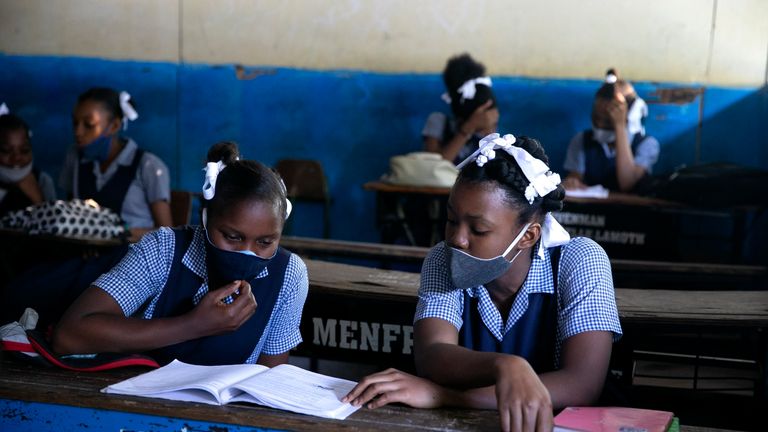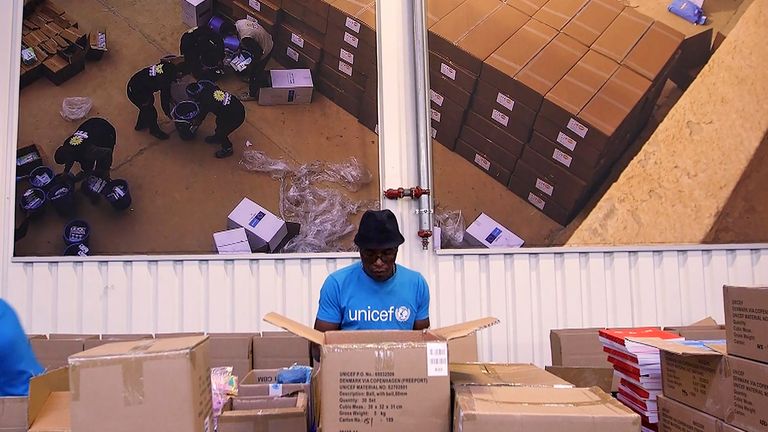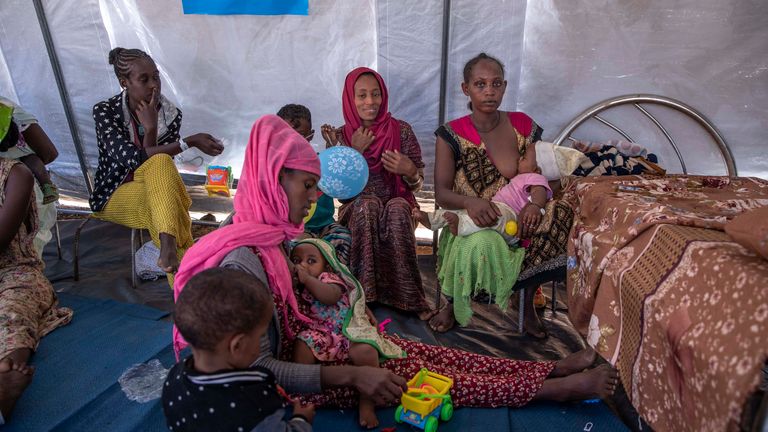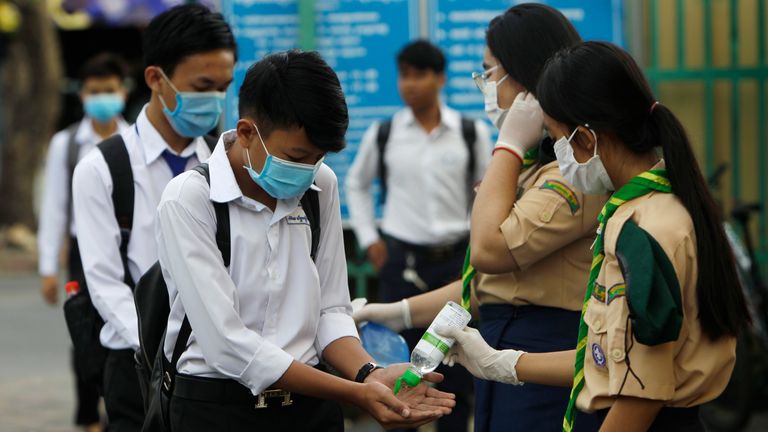The head of Unicef’s vaccination programme has called for wealthier nations to donate COVID-19 vaccines to developing countries before immunising their entire populations.
Dr Robin Nandy, chief of immunisation at the UN agency, said he does not think “any country can be safe unless all countries are safe”.
‘This is a moment for global solidarity and not vaccine nationalism’
In an exclusive interview with Sky News, Dr Nandy, whose team is tasked with helping vaccinate much of the developing world through the COVAX initiative, said: “We cannot forget the low and middle-income countries.
“Many wealthy countries have made commitments of doses to vaccinate three, four times over the size of their populations.
“Attempting to vaccinate your entire population before ensuring equity will still leave countries at risk – this is a moment for global solidarity and not vaccine nationalism
“We’re frustrated that the UK, US, EU are vaccinating and places like sub-Saharan Africa do not have access.
“That’s something we want to deal with and with our COVAX partners we’re putting in mechanisms in which we can get those vaccines and distribute them to countries who can’t afford them or do not have the means to negotiate for them.”
Sky News analysis last week found for every one COVID-19 vaccine given in a lower-middle-income country, wealthier countries have 23.
Vaccinating the world at the same time is ‘unprecedented’
An epidemiologist himself, Dr Nandy said normal vaccine roll-outs take several years in high-income countries then several more years for them to be available in low and middle-income countries.
“We’re doing something unprecedented here, trying to get all parts of the planet vaccinated at the same time in the same year,” he admitted.
Unicef is helping to procure and distribute the vaccine to countries signed up to COVAX, the programme set up by the WHO, the European Commission and France to ensure an equitable supply of vaccines.
It is a massive job, even for Unicef which distributes more than two billion vaccines to 200 countries annually, but Dr Nandy is confident their experience will ensure 20% of developing countries’ populations will be vaccinated through COVAX this year.
The goal of 20% was established to ensure all healthcare workers, people at high risk, the elderly and vulnerable would be covered – and hopefully, there will be enough to cover some frontline workers.
“This is going to stretch us big time, we’ll double our normal vaccination programme in 2021,” he said.
Distribution difficulties in developing countries
Dr Nandy said developing countries face different difficulties in vaccine roll-outs compared with wealthier nations, the major one being distribution – something he does not think enough is being invested in.
“Having a vaccine is not enough, vaccines don’t deliver themselves, it needs human and financial resources and I don’t see that adequate resources are now available,” he added.
“We’re used to distributing vaccines in these countries but there are difficulties, you need community engagement and need to tackle misinformation.
“The COVID-19 vaccine is the first to be associated with misinformation before it is even available – this is unchartered territory.
“There are lots of training requirements and once the vaccine hits a country there needs to be equitable distribution within, not just in the cities or to the elites but to those who need them the most.”
‘We can’t create one health crisis with another’
One of the major concerns for lower-income countries is ensuring childhood vaccination programmes are not abandoned as the COVID vaccine is rolled-out.
Because of the pandemic, conflict zones and remote locations, 20 million children have not received the necessary vaccines in the past year and this number will grow, Dr Nandy predicts.
Unicef’s vaccination programmes had to be paused for at least four months in many countries because of the pandemic.
As adults will be the focus of the COVID-19 vaccine initially, this adds another layer to distribution difficulties.
“There are huge risks here, I’m extremely concerned that countries will have adequate resources to ensure for the two tracts,” Dr Nandy said.
“We can’t see COVID-19 vaccines in isolation, we have to look at basic health systems, what are we going to lose in other services, we can’t take our eye off the ball.
“During Ebola in the DRC, as we were deploying vaccines some of those areas had major measles outbreaks that killed more kids than people were killed by Ebola.
“It’s a stark reminder for us that we can’t create one health crisis with another.”
Growing calls for global vaccine equity
Dr Nandy joins a growing number of leading figures calling for global vaccine equity, including the co-creator of the Oxford vaccine, Professor Sarah Gilbert, and the head of the WHO, Dr Tedros Adhanom Ghebreyesus.
Dr Mark Eccleston-Turner, a former WHO consultant on flu pandemics, explained there are three main reasons why wealthier nations should help vaccinate poorer ones. They are:
Moral
The altruistic argument that everyone has the same right to access a COVID-19 vaccine, no matter where you were born.
Public health
If the public health of say, the UK, is prioritised while people in lower-middle income countries (LMICs) go unvaccinated and continue to be infected, further mutations will occur and could render vaccines useless.
Economic
Supply chains and global economic activity cannot open up to pre-pandemic levels when only wealthy countries are vaccinated.






